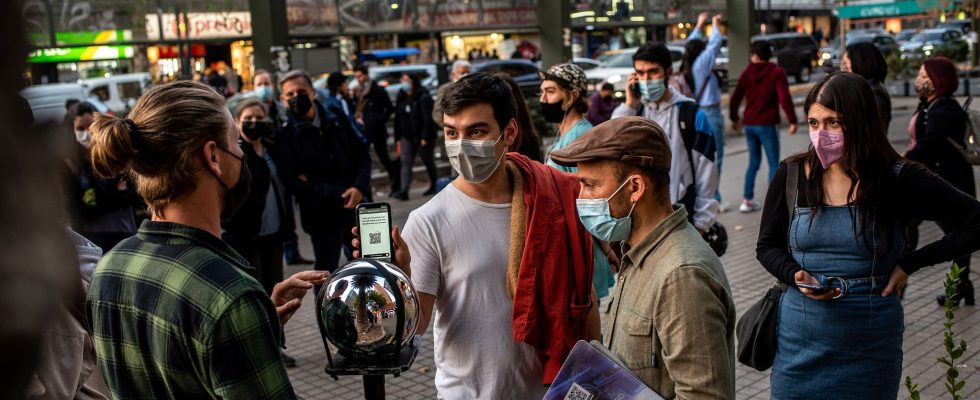“I am not a robot.” Today, it is enough to press this mention to prove its humanity. But in the face of deepfakes, “intelligent” machines and social networks, it is becoming increasingly difficult to distinguish man from machine. Sam Altman, the creator of the famous chatbot ChatGPT, thought about it. And its solution is called Worldcoin.
It comes in the form of an application – World App – launched this week in more than 80 countries. It must serve as a “human passport” and allow its user to prove that he is not an AI, when shopping online for example. To identify a new human, the Worldcoin project proposes to scan his retina and encrypt the data to extract a unique code. This operation is carried out using a tool called “Orb”.
Sam Altman does not intend to stop there. Thanks to his company Tools For Humanity, with which he has been developing this project since 2020, he also launched the Worldcoin cryptocurrency. The ambition is to make it an essential currency on the market within the next few years. If the operation is successful, he plans to use it to provide a universal income. Worldcoin could thus organize the direct redistribution of wealth to individuals who would no longer need to work as much following the development of artificial intelligence. And since each human could be identified thanks to his passport, redistribution errors could be avoided.
Already 1.6 million users
The project is titanic. But its ambitions are appealing: Worldcoin raised more than $100 million last year, for a valuation of $3 billion. The company claims over 1.6 million users. This year, Sam Altman has set the ambitious goal of one billion subscribers, even if Worldcoin faces some reluctance.
Many fear a possible piracy of the data collected, a leak, or even commercial use. And on this point, the creators themselves are cautious. “I’m not in a position to speculate on how Worldcoin could potentially be used,” Tools For Humanity CEO Alex Blania said in an interview. TechCrunch.
Another controversy: the methods of Tools For Humanity. Current users have mainly been recruited through “collectors”. In exchange for a few units of local currency and Worldcoin tokens, they have convinced thousands of people to have their iris scanned, especially in developing countries, such as Indonesia or Brazil, which are much less aware than others to data confidentiality.
